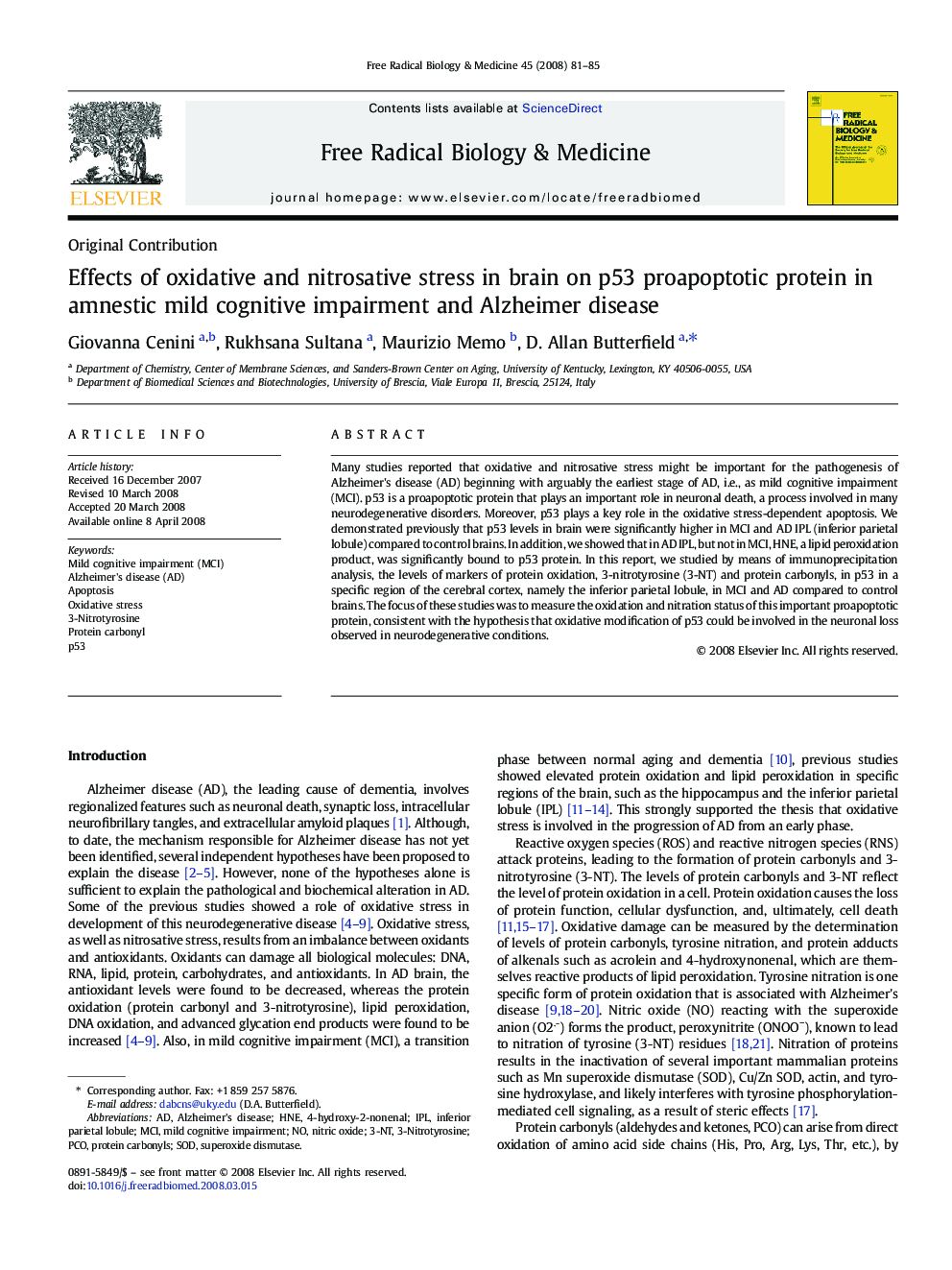| Article ID | Journal | Published Year | Pages | File Type |
|---|---|---|---|---|
| 1910866 | Free Radical Biology and Medicine | 2008 | 5 Pages |
Many studies reported that oxidative and nitrosative stress might be important for the pathogenesis of Alzheimer's disease (AD) beginning with arguably the earliest stage of AD, i.e., as mild cognitive impairment (MCI). p53 is a proapoptotic protein that plays an important role in neuronal death, a process involved in many neurodegenerative disorders. Moreover, p53 plays a key role in the oxidative stress-dependent apoptosis. We demonstrated previously that p53 levels in brain were significantly higher in MCI and AD IPL (inferior parietal lobule) compared to control brains. In addition, we showed that in AD IPL, but not in MCI, HNE, a lipid peroxidation product, was significantly bound to p53 protein. In this report, we studied by means of immunoprecipitation analysis, the levels of markers of protein oxidation, 3-nitrotyrosine (3-NT) and protein carbonyls, in p53 in a specific region of the cerebral cortex, namely the inferior parietal lobule, in MCI and AD compared to control brains. The focus of these studies was to measure the oxidation and nitration status of this important proapoptotic protein, consistent with the hypothesis that oxidative modification of p53 could be involved in the neuronal loss observed in neurodegenerative conditions.
